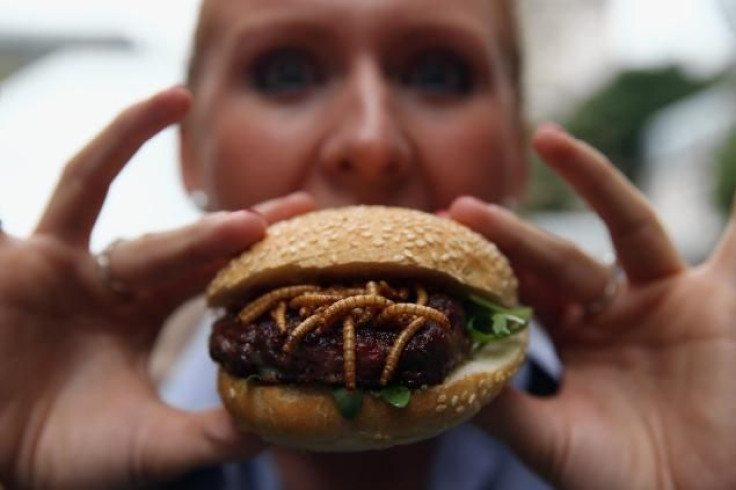‘Pestaurant’ Serves Up Bugs For One Day Only: BBQ Mealworms Or Chocolate-Dipped Ants, Anyone?

If you’re like most Americans, your primary source of protein comes from beef, poultry, or fish. If you’re part of the 13 percent of people who don’t eat meat, either as a vegetarian or vegan, your protein likely comes from soy products or nuts. But consider another option, which one London pest control service is dishing up for one day only. Would you eat at a “pestaurant”?
Chances are the answer is a resounding “Never.” But behind the gross out-factor lies a surprisingly wholesome form of nourishment. Many insects, in addition to being edible (and palatable) still in their raw form, contain significant sources of protein with minimal fat. Even better news, according to the Food and Agriculture Organization of the United Nations, there are an estimated 1,900 species of edible insects.
Opening The ‘Pestaurant’
Pest control service Rentokil opened the pop-up pestaurant to celebrate the “hard work that goes into keeping the UK’s pests under control,” according to David Cross, head of the technical training academy at Rentokil, which has been up and running for 85 years.
It offered such delicacies as sweet chili mealworm-topped pigeon burgers, BBQ mealworms, salt and vinegar crickets, and chocolate-dipped ants. The pop-up restaurant is the first of its kind in the world, according to the Independent.
Not everyone enjoyed the nontraditional fare. Tim Guest, 40, popped a few mealworms in his mouth before stomaching the “slightly slimy” creatures.
"They're not exactly very nice to the touch,” he told the Independent. “It feels wrong on a fundamental level.” After some rumination, Guest added that his aversion to eating mealworms was probably just the initial shock getting the better of him.
"I don't really see why anybody wouldn't eat them,” Guest said. “I think it's just the concept really, rather than what they actually taste like. I think they taste fine."
Sharing that opinion was nine-year-old Stan Knight, who became perhaps a little too boisterous after scarfing down 10 mealworms at once and promptly vomiting them up. He said he still enjoyed the experience.
“I don't know. I liked them,” he told the Independent. “They were really nice. I think it was because I had too much of them in one go. They just felt like normal food.”
Getting Healthy And Going Green
While it’s unlikely they season their crickets with salt and vinegar, or barbeque their mealworms, a raft of other cultures still considers insects “normal food.” Known as entomophagy, the process of consuming insects for food presents its practitioners with not only with wide availability but with great nutrition as well.
Consider the cricket. Compared to 100 g of ground beef, which contains 288.2 calories, 23.5 g of protein, and 21.2 g of fat, 100 g of crickets contains only 121 calories, 12.9 g of protein, and 5.5 g of fat. It also provides 75.8 mg of calcium, 9.5 mg of iron, and 185.3 mg of phosphorous.
Mealworms, too, offer viable sources of nutrition to humans. One study, published in PLoS ONE, found significant evidence that mealworms — the larvae of the mealworm beetle — may be critical in the fight for sustainable food production around the world, due to their efficient food process ratio.
Researchers found mealworms not only produced more protein than beef or poultry per square foot of land, but that they released far fewer carbon dioxide emissions than livestock as well.
“Since the population of our planet keeps growing, and the amount of land on this earth is limited, a more efficient, and more sustainable system of food production is needed,” said study co-author Dennis Oonincx, researcher in entomophagy at Wageningen University in the Netherlands, in a prepared statement. “Now, for the first time, it has been shown that mealworms, and possibly other edible insects, can aid in achieving such a system.”
This future seems bright, but first people need to get over the hurdle of eating insects. The pestaurant made considerable leaps in breaking through the barrier of disgust, but perhaps only as a short-lived novelty. Sustainability means incorporating mealworms and crickets into a normal diet, much like other cultures have already done.
Tim Guest, at least, doesn’t know if he’s willing to pay that price.
"I wouldn't go and grab a handful from the wild and shove them in my mouth,” he told the Independent.



























